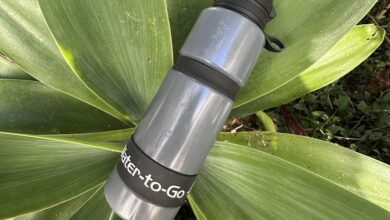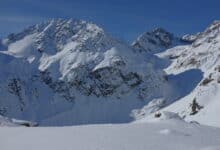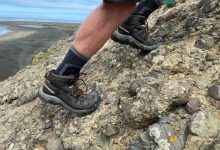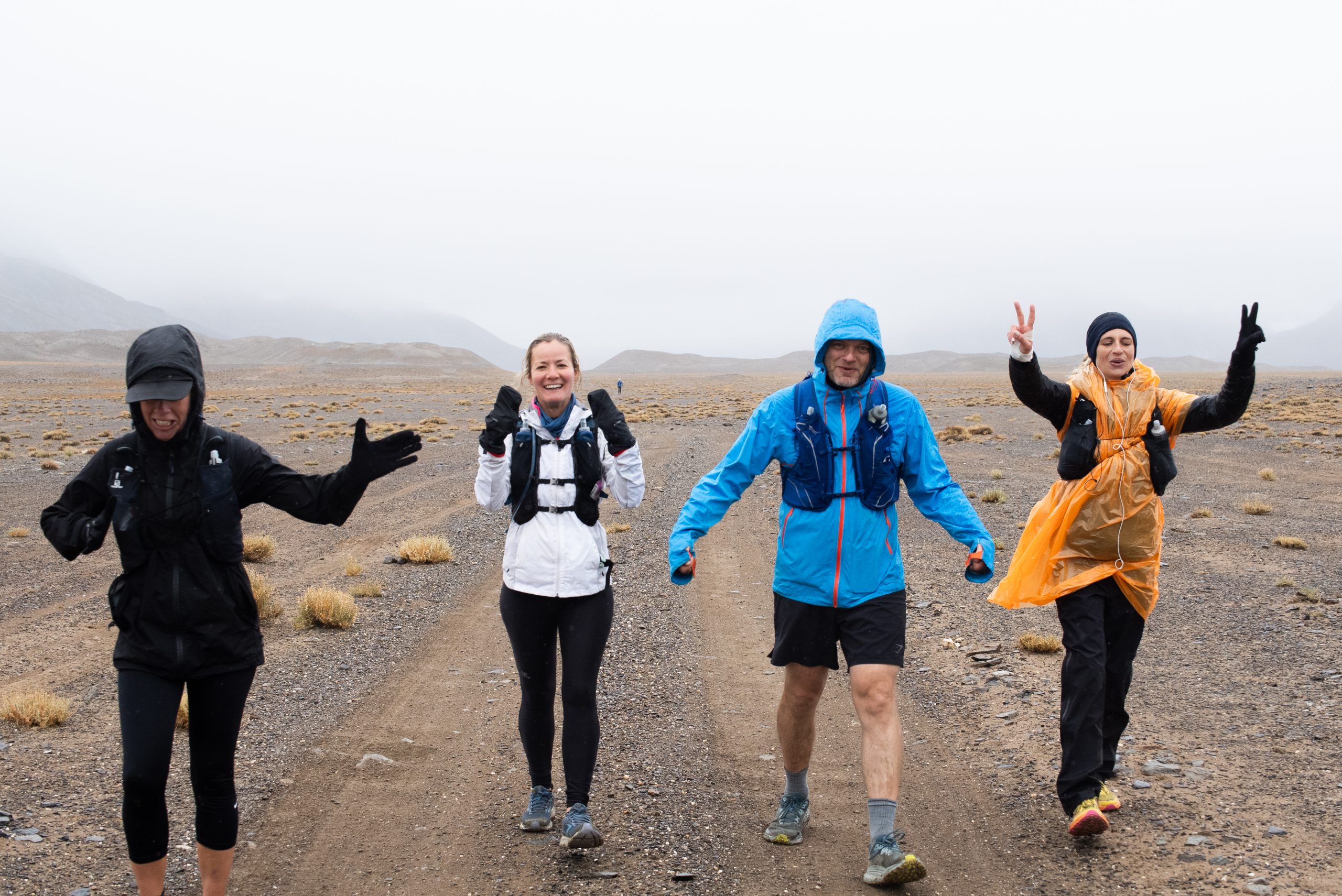
Tajikistan is a beautiful emerald of a country that was once part of the USSR, squished between Afghanistan, China, Uzbekistan and Kyrgyzstan, a country awash with turquoise rivers, green pastures and towering mountains. As you can imagine the varied influences make Tajikistan a mouth watering smash up of cultures and people. The Tajik language for example is Persian but written with the Russian, Cyrillic, alphabet. However Tajik is only one of over 9 languages spoken in the region with Russian being the preferred language for business and government.
14 of us arrived here with the aim of running across the country – up the Bartang Valley, from Afghanistan to the Chinese and Kyrgyzstan borders. Just under 300km. A route into the unknown.
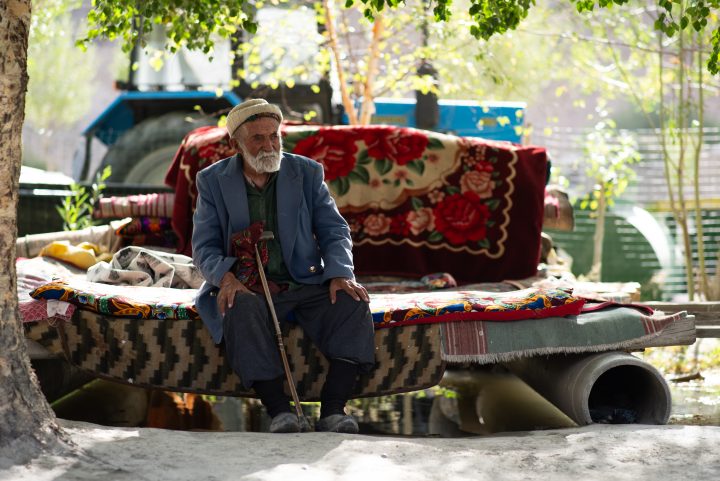
14 years ago I was on my bike in Kyrgyzstan having cycled here from London on my sturdy Long Haul Trucker bicycle named Shirley. Shirley and I were hanging out in Saritash a town that is the crossroads of the Silk Route. My intension was to take the left turn and head into china with my eventual finish place in Southern India where I was due to start teaching at a school. But the right turn pulled me in – it led to the Pamir mountain range that soared above me, the Pamir Highway lay in front of me, and the promise of a country I hadn’t known about a week previous grabbed my heart. The right turn was the one my heart wanted to make but I turned left none the less and stood on a pedal. The rest is history. I made it to a school in southern Indian a few months later.
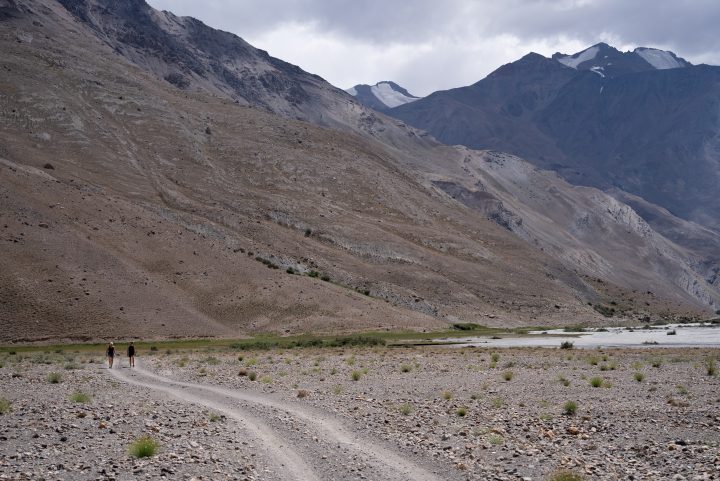
But Tajikistan was still nestled in my heart. Life happens and like my closet things get piled on top of other each other and soon those at the bottom are forgotten – the same was true for Tajikistan. Until I saw a film at festival which rekindled this passion. I decided I had to go back. I’d got seriously into running in the last 10 years and my bike had taken a back seat. So decided to try and run it. I was going to try and run from the Afghan border to the Kyrgyzstan / Chinese border in 7 days.
I’ve got used to popping ideas like this on my social media with a statement: “who wants to join me?” It always surprises me how many friends are willing to take a step beyond the normal rational and join me on quirky, sometimes dangerous, sometime ridiculous ventures into the unknown. I’d done it before running across Iceland. This time 14 people said they wanted to give it a bash and our team was formed.
The cross cultural influences also means visiting the country comes with some warnings. The close proximity to Afghanistan means that everyone I told asked if was safe to be so close to Afghanistan and the Taliban. Adding to this there was occasional news on the BBC stating that Tajikistan was at war with Kyrgyzstan and that that border was unsafe. Mixing in some general mistrust of the chinese the people we spoke to generally thought this was a recipe for disaster. My previous travels told me that political propaganda and paranoia were more numerous than bad people in the world. But I was nervous – shootings, kidnap were high in my mind.
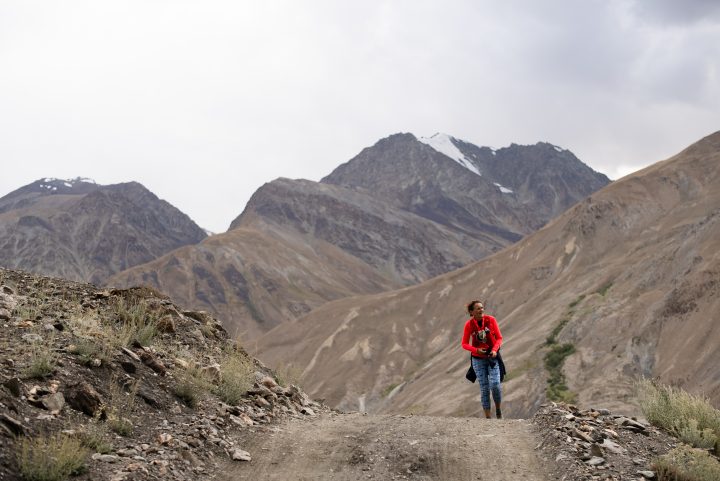
Our trip from Dushambe (the capital of Tajikistan) to our starting point, Rushan, we were never more than 100metres from the Afghan border – across the Panj River. We saw Taliban on the other side exactly as you see them in the press in a flat back truck with AK47s on their shoulders. They didn’t seem anywhere near as interested in us as we were in them – but our drivers stopped one of our pals taking a picture just in case.
Our drivers. Komron, Iraj, Mischa, Assan, the doctor Mamadyour and our cook Akram. When we first met we stood in the hotel lobby unsure how to proceed. They stood by their cars equally awkwardly. There was a clear division between us as we set off. They couldn’t speak English and we couldn’t speak Russian or Pamir or Tajik (the three languages they spoke). As we set off it became clear that they were free people who didn’t seem to understand or want nor care what we wanted to do. They just did what they wanted to do. It caused a bit some friction. Some being an understatement. Typically British we complained behind their backs. It was clear they weren’t too happy with us either. The whole concept of running the route seemed bonkers to them and the frustration of not getting from point A to B in the quickest time (ie in their cars) was unfathomable – they kept telling the back runners to get in the car. But obviously us runners were determined to make it every step of the way on foot.
Still communication between the two teams was negligible and tensions were growing as our runners hadn’t quite been supported as we’d hoped. Then we pulled out our 3 ft speaker we always take on our adventures. I had my phone plugged in with some motivating high tempo music to inspire the runners. Mischa had different ideas. He disconnected my phone and plugged in his own. And let loose with some traditional pamir music. Suddenly the mood changed. The 4 driver and doctor started dancing together. Very emasculated men dancing together – beautifully. As each of the runners came through the check point they stopped to dance with them – some gracefully and some less so. Smiles were shared. Laughter erupted. And suddenly the whole trips mood changed. We finally connected. With dance and music.
Slowly as we all relaxed things seemed to change. We realised that we didn’t know best and that these drivers knew these roads back to front.And the drivers started to enjoy the slow pace of life that our runners required. They’d stop the cars whenever they saw a house and enjoy the company and food of the local people. Who would welcome the runners to spend the night, enjoy food with them, share a selfie – the drivers and us guys were made to feel welcome at every turn. It was part of the culture of the people it seemed. Wherever we went we would receive kindness and gifts without question. Although the landscapes of towering glaciers and mountains and lush green valleys made for Instagram perfect pictures it was the people that they talked about in an evening when we shared bread and soup at homestays.
Mischa took charge of the sound system from then onwards and at any opportunity he’d have the speaker blaring and would dance with anyone who would with him. Farmers, shepherds, anyone really. But the best parties were when we got to small villages – the runners would collapse exhausted and the drivers took the speaker outside and the whole village would descend for a party and dancing. It was beautiful to watch and occasionally we were dragged outside to take part.
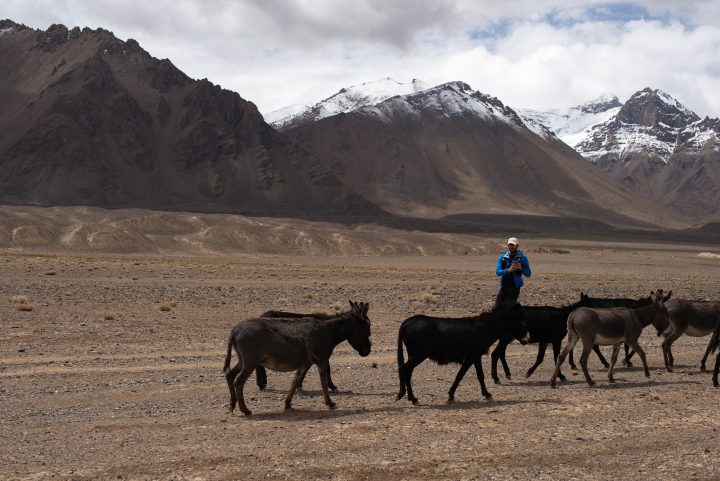
Hassan had a cheeky smile (and also suspected appendicitis on route which ended in a rural hospital – this story is for another day. All you need to know is he survived). He was a calming influence and spokesperson for the drivers. He would stand and give us motivation in Pamir. Then there was Komron, the leader, calm and calculated. Not a giant at just over 5 ft tall but commanded the respect of one.
Iraj became my favourite driver. I was collecting all sorts of souvenirs from the road. Horns from dead sheep, old kettles, little stones. Iraj would clear out his car each morning and evening throwing these items as far away as possible from his car. I would then collect them and put them back for them only to br thrown away 12 hours later. Iraj was determined to learn some English so we could communicate – probably to tell me not to bring the ‘souvenirs’ back into the van. We used the dirt and dust that accumulated on the side of the van to draw pictures of things and then share the word in English and Pamir respectively, once we had the basics he trusted us with ruder words – as long as Komron wasn’t around to tell him off. Our pronunciation made them laugh which was all the encouragement I needed. But one statement I perfected. Tajikistan Bapesh. Meaning Tajikistan ‘Let’s Go’. It became the chorus of the trip – and any time anyone said it the drivers and the docs faces lit up.
The runners covered around 26 miles (a full marathon)every day and if that wasn’t enough a sickness swept through the camp leaving us with exploding butts and projectile vomit and debilitating fever. The doctor Mamadyor came into his own here. He would come out with his old school medical bag and treat our sickness as he had our blisters and sores – with complete calm and care. It felt like your mother was looking out for you.
Those without the sickness were dealing with leaking tents, altitude sickness, the disgust of watching a goat be slaughtered in front of us for our dinner (surely we need to understand where our dinner is coming from), a few got lost in the mountains and returned well after dark, along with there sore muscles, feet, backs, heads. But every time there was an interaction with the local people, those people weeks before we’d been warned against, or a laugh shared with the drivers who we couldn’t communicate with before – it made all the rest worthwhile.
We tend to look up pictures and highlights of a country before we go. But time and time again it’s the people that stay with us when we leave. Especially in places like Tajikistan where you hear warnings and receive treatment that is quite the opposite. And with this trip – it’s the drivers we remember most fondly. Their laughter, their kind body language in the absence of words, their cooking, their crazy driving but most of all we remember there dancing and they way they invited us to be part of their culture for a few weeks.
We were close to the border and our finish line. The drivers had done their job – they’d managed to get us to the end. I said to them “Thank you. It’s OK now, you don’t have to come, we’re finished, relax, have some tea”. Iraj, with the basic English he had said, “We come far together, we see the end” as they all stood in unison – I had to choke down a cry. We were no longer drivers and runners. We were no longer English or Pamir. We were friends. We’re already planning to come back next year to reignite this friendship!
The runners all made it in one by one, including one runner who’d just had the all clear after breast cancer, another who didn’t know it yet but would be diagnosed with breast cancer on her return. People who had lost parents. We dealing with their own story. Each one passed the finish line ribbon held by the drivers who embraced them. We embraced them back.
That night in our small homestay you could hear the chink of vodka glasses as we celeberated our shared achievement and the cries of “Tajikistan Bapesh!”





